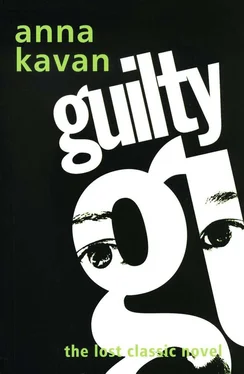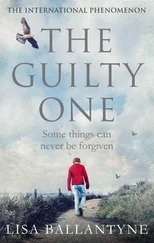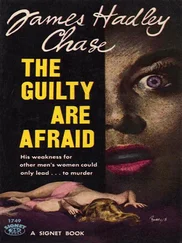She tried to pass it off by saying that it was probably because I’d arrived at half-term, instead of with other new boys when term began; the Head must have thought it would be embarrassing for me to stand up alone in front of the whole school, with nobody beside me. In view of what had occurred, unbeknown to her, in the Head’s study, I thought such consideration for my sensibilities improbable in the extreme. And now I began to be faintly alarmed and to conjure up grim pictures of what this discrimination might portend.
None of the grisly possibilities I imagined actually came to pass. But I had to endure something more than coldness on the part of the other occupants of the dormitory, when I was finally left among them at bedtime. I thought they seemed an unfriendly, stand-offish lot but put it down to their annoyance at having to show me the ropes, according to Matron’s instructions. It was some time before I found out what had happened at the assembly in Big Hall, from which I’d been excluded.
It was at these evening assemblies that the Headmaster made his most sensational and most weighty announcements. Only matters concerning the whole school were thus brought up and, by being so referred to, attained exceptional importance. So everybody was most curious to hear what he had to say that night.
Most of his hearers would know, he began, that a new boy was joining their ranks; a fact only deserving of notice because connected, in this case, with a secondary and sinister factor of the utmost significance. Never, in all the centuries of the school’s existence, had there been any deviation from the principles laid down by the original founders, one of which was the Head’s right to refuse admission to a pupil at his discretion. This right had now been summarily suppressed by a high authority he wasn’t free to name, this same authority having enforced upon him the acceptance of the boy he’d just mentioned. To some members of his audience the boy’s name might be familiar. It was a name which had been prominent in the press, receiving much publicity of widely different kinds. The boy’s father had served his country well and this fact had been recognized, making his subsequent traitorous apostasy even more odious than it would otherwise have been. Admittedly, the son was not old enough to have participated actively in his father’s guilt. But he’d been in intimate contact with loathsome doctrines, by which he must inevitably have been infected. Left to his own discretion, the Head would no more have dreamed of admitting him to the school than he would have allowed a known carrier of disease to mingle with his pupils. Authority had taken the matter out of his hands, forcing acceptance upon him with menaces, threatening dire consequences if the boy complained, either of the treatment he received here, or of disrespect to his father’s name. In these circumstances, he had to forbid all reference to the man, and to enjoin upon them a distant attitude, flavoured with suspicion, towards the son. The principal felt that he could only keep his integrity by thus taking the whole school into his confidence, warning them solemnly of the danger in their midst, while relying upon their loyalty not to bring him into further conflict with those in power. He was sure they all shared his own horror of the doctrines with which the newcomer had been contaminated. It was his duty to remind them to be always on their guard, bearing in mind this infection carried within. Outwardly the boy was presentable; the impression he made was in some respects not unfavourable. Let them not be deceived by appearances, or his warning would have been in vain.
This speech was recorded in a volume the Head published some years later under the title ‘Words and Warnings to Youth’, from which I was able to copy it, and it explains much that was mysterious to me at the time. During my first term, while I was still unused to community life and everything still seemed strange, I was made most unhappy by the way my companions avoided me, despite all my efforts to please. Since I was, in spite of everything, a fairly normal young animal whose behaviour presented nothing unfamiliar to them, I think they’d have liked to be friendly. Some would even respond to my advances up to a point; but then, remembering the Head’s warning, or reminded of it, would withdraw hastily in confusion, to my increasing bewilderment. I really began to think there must be something about me which prohibited friendship and that I’d lived too long alone ever to have any friends.
The following term my situation improved, mainly, I think, because it was summer, when a general tendency to relax is felt in our northern climate after the ice-bound winter and chilly reluctant spring. Having, presumably, got over the indignities he’d suffered on my account, the Head didn’t repeat his warning. And as, with the passing terms, there was a larger and larger proportion of boys to whom his words were just hearsay, the memory of his speech gradually faded out: the whole affair slowly passed into a sort of legend, which finally even enhanced my reputation. Once I knew I had been accepted, and had firmly established myself, it rather gratified me to be pointed out as the villain of that old story.
Something had happened, nevertheless, in consequence of those lonely unhappy weeks I spent as a new boy, unaccountably shunned or, worse still, dropped abruptly after the first preliminary moves of friendliness. I myself was confirmed, once and for all, in the conviction that I was different from everyone else, unlovable and apart. And, whether because the distrust caution implanted in me made intimacy impossible, or for some other more obscure reason unknown to me, I never succeeded in making a really close friend. Being quite gregarious, and with a natural aptitude for all forms of sport, I wasn’t unpopular; superficially I got on well with both boys and masters. But though I had hordes of acquaintances and was rarely alone, I remained isolated in spirit, incapable of, or reluctant to, embark upon intimate friendship. It was, with every potential friend, a case of so far and no further. A point quickly came beyond which the relationship would not, could not, advance. I didn’t exactly want this to happen. But, as time went on, I accepted the pattern as inevitable and even took a sort of proud gloomy pleasure in the idea of walking alone in the midst of the crowd. All the same, I endured moments of near-panic, when I felt debarred from everything valuable and fated to be an outcast all my life.
At some point during my adolescence, I began to connect these fearful moments with a peculiar sense of vulnerability of which I’d become aware; an urgent need for protection, as though I’d been born minus some natural weapon everyone else possessed or were doomed to an unendurable fate nobody else would have to suffer. These irrational feelings were utterly real to me, the cause of much distress at this period, when for days at a time I was enveloped in nameless anxiety, of which I could speak to no one, from which I longed quite desperately to escape.
The unreal world, which used to lie so close behind the face of everyday things, had, since my coming to school, retreated further into the background, though I’d never lost touch with it altogether. So many exterior contacts had kept it in abeyance; I’d almost come to believe it was a part of the childhood I’d outgrown. Now, suddenly, I saw it as a way of escape, fulfilling my urgent need. Here was precisely what I wanted: a sanctuary always accessible to me but to no one else. Life might do its worst, if only I could elude it by taking refuge in another world where I was immune from pain. Unfortunately, the transition wasn’t under my control. So I began to practise escaping, unfocusing my eyes, conjuring up a scene from memory or imagination and willing it to take the place of reality. I could never depend on being able to pass from one world to the other in this way at will. But I did, by degrees, attain some success in crossing the borderline. As may be imagined, opportunities for practice were few and far between in a life lived in close proximity to several hundred boys; and I had a dread of anyone finding out what I was trying to do, for it was clear to me that neither this form of escapism, nor the feeling that inspired it, could be considered quite normal.
Читать дальше












